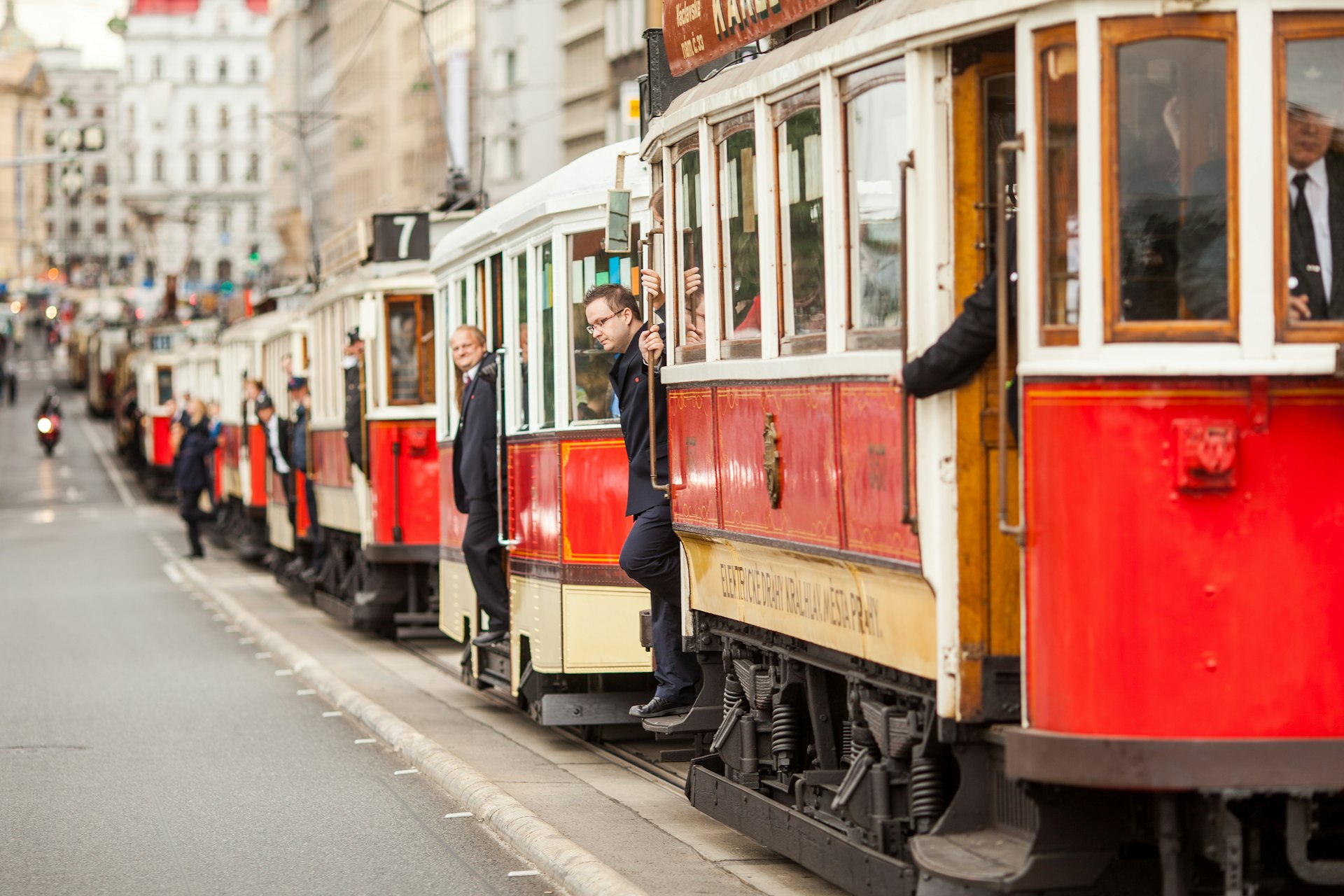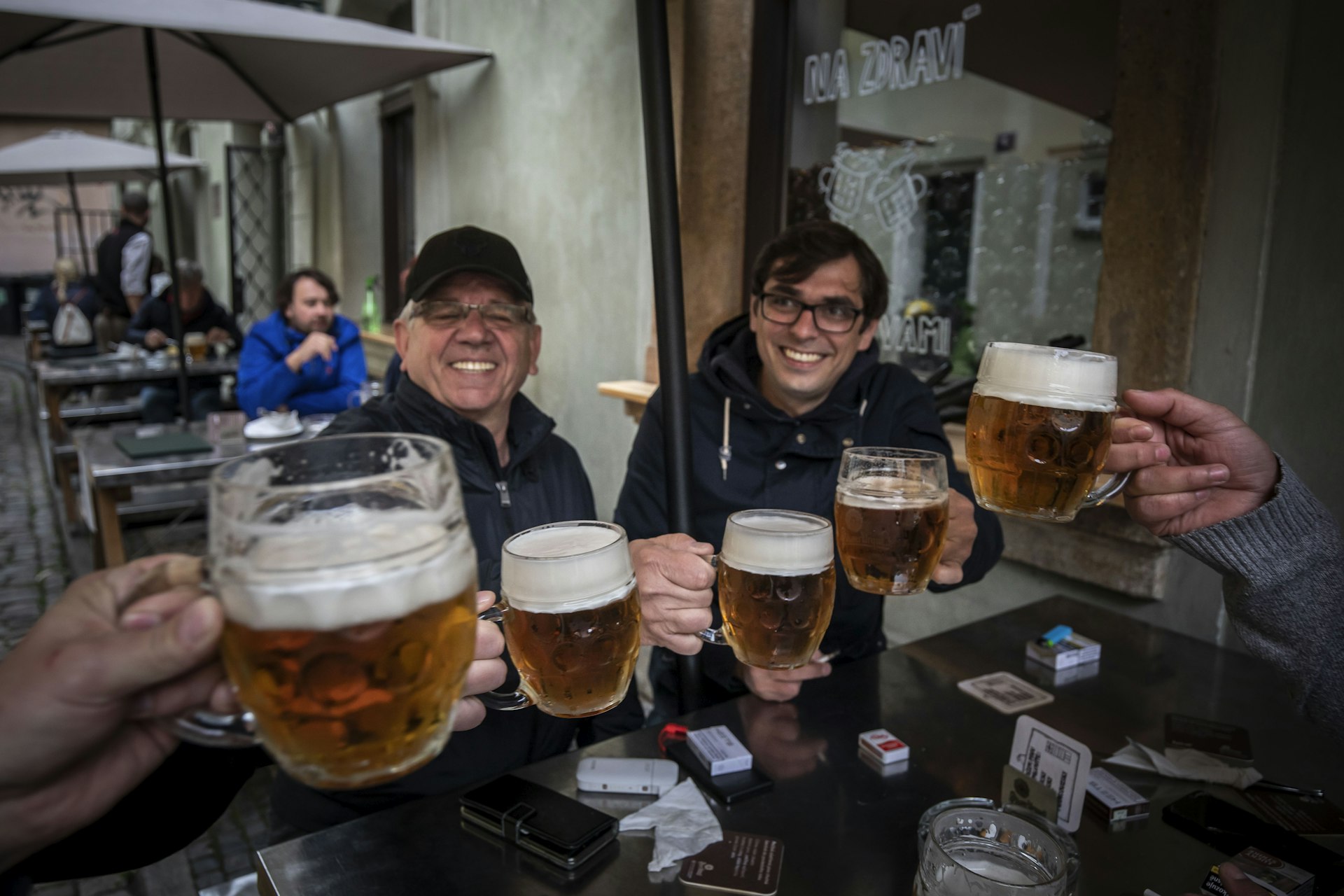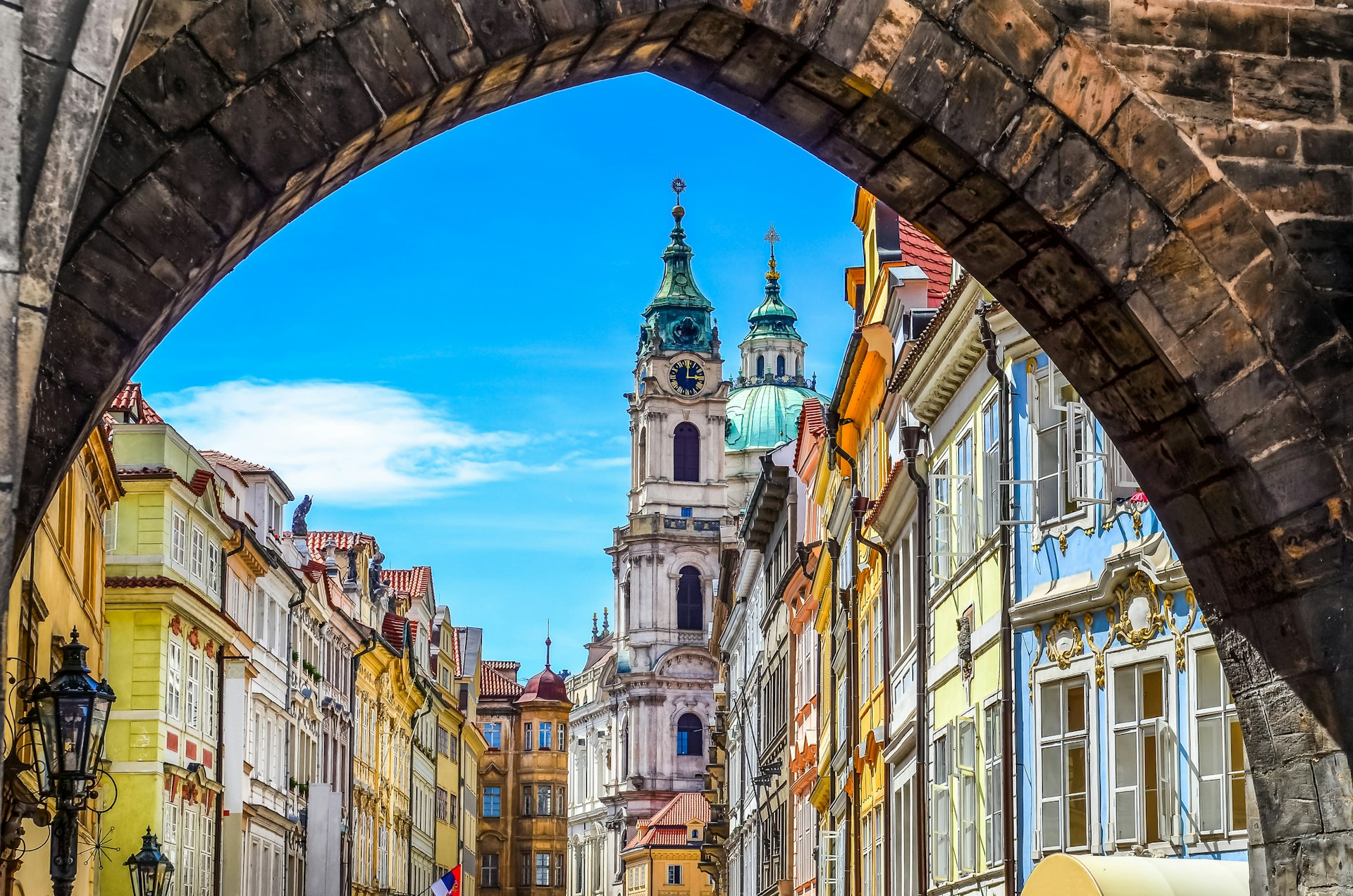Prague has long held a reputation as a prime budget city getaway.
Although the days of gasp-inducing low prices are gone, the Czech capital won’t punish your wallet the way many other European destinations can. Its good value is partly down to the affordability of some key ingredients to a great city break – namely public transportation, food and beer. It also doesn’t hurt that the city’s medieval center is akin to a free-wheeling open-air gallery, where Gothic grandeur, surprising street art and ancient bloom-filled gardens can all be admired for free.
Still, it’s useful to have a few money-saving tips to hand if you want to stick to a budget. Here are some ways to cut your costs when visiting Prague.
Daily costs in Prague
Hostel dorm room: 500–900Kč
Basic room for two: 1100–2200Kč
Self-catering apartment (including Airbnb): from 1700Kč
Public transport ticket: 30Kč for 30 minutes, 330Kč for a 3-day pass
Coffee: 60Kč
Traditional open-faced sandwich (chlebíček): 40Kč
Dinner for two at a traditional Czech restaurant: 500–1200Kč
500ml glass of Pilsner Urquell beer at a pub: 45–60Kč
Flying is often the cheapest way to reach Prague
Most major European airports, and some smaller regional ones, have regular low-cost flights to Prague. Book well ahead for the best deals, and be aware some routes don’t operate in winter. Should you be connecting through a European capital, do some research before booking an onward low-frills flight from an airport on the other side of the city, as the transfer costs could negate any savings on airfare.
Flying generally works out to be cheaper than rail. That said, if you want to gorge on panoramic views and take in a couple of different cities en route, it’s worth investigating train tickets; a single seat from Berlin to Prague can be had for as little as €35.
Travel from the airport to central Prague for less than $2
Prague’s public transport system is safe, reliable and an excellent value. Using the network to travel from the airport to central Prague takes around 50 minutes, and although there’s a bus-metro transfer required, the trip costs only 40Kč ($1.80). You can buy tickets at the visitor-information office or from machines at the terminals. (Be sure to check your bank’s charges before using your debit or credit card abroad.)
Visit during winter for half-price accommodation
Other than festive December, winter in Prague is a cold, quiet season. This tranquility not only means fewer people drifting into your photos but also substantial savings on accommodations, with some hotel rates dropping to half of their August peaks. Of course, these winter deals come with a trade-off: the shorter days and freezing temperatures make it harder to savor the city’s free yet primarily outdoor diversions. A possible solution is to invest in a hardy winter wardrobe and budget for the odd stop at a warming beer cellar or cafe.

Stay outside the center
Whatever the season, you’ll find tempting accommodation prices by booking at least a few months ahead and by looking at neighborhoods beyond Prague’s cobblestone center. The districts of Karlín and Holešovice are well served by trams and the metro, and their colorful mansion blocks house a choice of unfussy holiday apartments and sociable hostels. Staying in either neighborhood means being close to some vibrant nightlife without the risk of stumbling into a tourist trap.
Backing onto Nové Město (New Town), leafy Vinohrady might be one of the most desirable (and expensive) addresses for locals and expats, though it also has its fair share of spick-and-span, budget-friendly holiday stays. Hostel One Míru offers its guests free city tours and serves up complimentary family-style dinners.
Figure out which transport ticket works for you
Public-transport tickets last 30 or 90 minutes, with one- and three-day passes available as well. Once validated, all allow you to switch between metros, trams, buses and ferries within the allotted timeframe. One- and three-day passes also include the Petřín funicular railway, which otherwise costs 60Kč.
It’s worth checking the different prices and making some rough itinerary-based calculations to maximize value for money; whichever ticket you choose, you’re guaranteed a good deal. Bear in mind that the knotted lanes of Staré Město (Old Town) and Malá Strana (Little Quarter) are compact and are fun to explore on foot.
Take a walk
Pack a pair of your most practical shoes and get to know Prague at the ground level – for free. If you need a little help getting your bearings, it’s possible to book walking tours that run on a tips-only basis. Prague Extravaganza will lead you past the elegant art nouveau facades and fairy-tale Gothic towers of Prague’s Old Town and Jewish Quarter. The knowledgeable guides also host regular strolls over Charles Bridge and up to the free-to-enter complex of courtyards and gardens within Prague Castle.

Hunt down lunch specials
The trend for weekday lunch specials sprung up in response to many of Prague’s office workers receiving food vouchers as an employee benefit. Thankfully, you don’t need to be wearing business attire to take advantage of the discounted meals. Instead, keep an eye out for the short denní menu (daily menu) offered by many restaurants between 11:30–14:00, on which a soup is about 50Kč and a small main is 110–140Kč.
Eat Vietnamese
Prague’s sizable Vietnamese community means you’re never too far from an authentic and good-value bowl of pho. Head to Phở Bar on Národní or squeeze into the standing-room-only Pho Vietnam Tuan & Lan in Vinohrady to try some of the city’s best noodle-laced soups. In addition to comforting broths, Bao Bao serves affordable bao buns and generous mains. Deli Viet, off Wenceslas Square, has fast service and filling portions.
Drink local beer
The Czechs produce some of the world’s best beer, served up at equally world-beating prices. Pilsner Urquell, Budvar, Gambrinus and Kozel are popular brews, and a hefty 500ml tanker of these local lagers well set you back around 50Kč in a city center pub. For even more reasonable prices, head to the outlying districts: student-filled Žižkov has a well-earned reputation for delivering a cheap and raucous night out.

Bring a picnic blanket
Despite many Czech restaurants’ generally excellent value, you can still save a few korunas by packing a picnic. Keep an eye out for branches of Albert, Billa or Tesco supermarkets for reasonably priced provisions. Alternatively, treat your senses with a trip to a farmers market. On Saturday mornings, there’s seasonal fruit, hunks of fresh bread, jams, honey, and all manner of pastries at Naplavka; it’s also worth browsing other smaller markets taking place. Take your spoils to the grassy slope at Riegrovy sady and dine while surveying the spire-filled skyline.
If cobbling together your own feast sounds like a hassle, pick up a chlebíček. These traditional open-faced sandwiches are the ultimate inexpensive Czech fast food. The versions sold by Sisters Bistro and Ovocný Světozor are worth the lunchtime queues. Alternatively, the popular butcher’s shop Naše Maso sells meatloaf sandwiches and cooked sausages with homemade mustard for less than 100Kč.
Pick your attractions wisely
Prague City Pass and Prague CoolPass both promise free and discounted admission to some key museums as well as sightseeing tours. While you can argue about which offers the best value, neither provides great returns unless you work hard to cram most of the included attractions into your itinerary.
Free museums in Prague are rare (with the notable exceptions of the National Memorial to the Heroes of the Heydrich Terror and most visiting exhibitions at Galerie Rudolfinum). Many offer excellent value, though, especially the large-scale national institutions. So, where a ticket to a small, private museum can cost around 300Kč, entry to the vast collections at the National Museum is 250Kč, and children under 15 are free. If you’re under 26, you can enter any of the dazzling permanent exhibitions at the National Gallery of Prague without charge (just have your ID to show). There are also some days through the year when admission is free.
